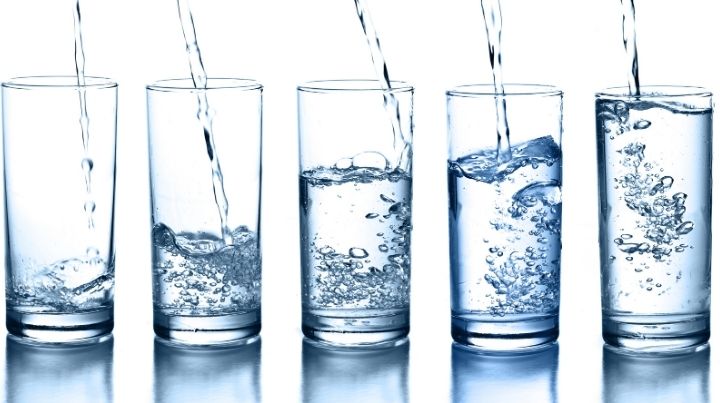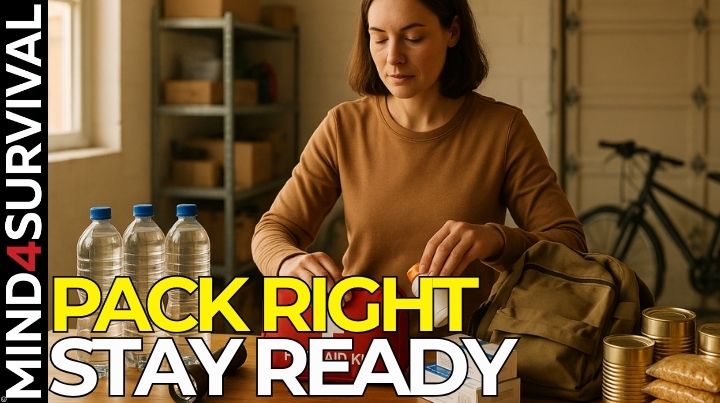How Much Water Do You Have to Drink a Day?

How much water do you have to drink a day to stay hydrated, healthy, and able to perform at the top of your game?
In the developed world, we tend to take clean, potable drinking water for granted. Typically, you don't think about how much water you should drink a day. It's understandable. Water is almost always readily available. Even if not, most people haven't been in a situation where severe and long-term dehydration would be a factor. Constant water supplies are a comfort that we've become accustomed to, even during the heat of summer.
When survival becomes your top priority in the event of a disaster, these comforts go out the window. Whether a natural disaster or man-made calamity causes it, readily available, clean water is anything but a given. That alone provides us with a reason to learn more about how water interacts with our survival and how much water we should consume in a day, whether you always have clean water handy or are trying to make do in the event of an unforeseen disaster.
How Much Water Do You Have to Drink a Day?
According to the Mayo Clinic, there's no one simple answer. Studies have yielded varying results, but you likely know about the old “drink eight glasses a day” prescription. It's way more complicated than that.
Different people need different amounts of water. That makes the question of how much water you have to drink a day a little more complicated.
Now, it's not so much of a difference that what keeps one person hydrated will be extremely insufficient for another person's hydration. In general, humans need the following amounts of water per day, according to the National Academies of Science, Engineering, and Medicine (NASEM):
- 15.5 cups a day for men (3.7 liters | 3.9 quarts | 129 fluid ounces)
- 11.5 cups a day for women (2.7 liters | 2.9 quarts | 96 fluid ounces)
[1 gallon = 3.78 liters = 4 quarts = 16 cups]
What? I thought I only needed 8 glasses of water a day!
You'll notice that both of these recommendations are significantly higher than the “8 glasses a day” rule, and here's why:
The “8×8” rule, as people commonly refer to it, sets a reasonable day’s water intake at eight, eight-ounce glasses. This comes out to about 2 liters (2.1 quarts | 70 fluid ounces) of water, much less than the official recommendation from NASEM.
This is because about 20 percent of a person's daily water intake comes from their food and other beverages. The 3.7/2.7 liters (3.9/2.9 quarts) estimate includes water from other sources, so don't feel bad if you're not quite drinking this much water each day.
Keep in mind these are amounts necessary in everyday situations. Hot weather, pregnancy, certain illnesses, and physical activity can increase your need for drinking water.
Implications for Survival in Case of Emergency
As preppers, we tend to look at knowledge regarding how it can help us in a disaster situation. It's well-documented that you should always have a clean water supply stored away. But that's not just for drinking. When you do store water, it should include water for cooking, cleaning, and bathing.
The World Health Organization states that in an emergency, a person needs about 2.5 to 3 liters per day (2.6 to 3.2 quarts) for consumption, 2 to 6 liters per day (2.1 to 6.3 quarts) for hygiene, and 3 to 6 liters per day(3.2 to 6.3 quarts) for cooking needs. This totals about 7.5 to 15 liters per day (2 to 4 gallons per day). So, storing water ahead of time and identifying alternative water sources in advance of a survival situation is always a reasonable course of action.
The Bottom Line on How Much Water Do You Have to Drink a Day
While it's essential to store enough water for sufficient hydration, many preppers leave water for cleaning, cooking, and sanitation out of their equation. That can be a dangerous mistake. Waterborne diseases are the number one killer of people worldwide, and not just in all-out disaster scenarios.
Of course, none of us has enough space to store enough fresh potable water for an extended emergency, so your backup plan must include the acquisition of water as well as purification methods to make it safe to drink.
Your ideal range of how much water do you have to drink a day falls between 11.5 and 15.5 cups per day.
Stay safe,

Related Articles
FREE Guide
Read the Best Seller
Join Mind4Survival
Stay informed by joining the Mind4Survival! 100% Secure! 0% Spam!
Affiliate Disclosure...
Mind4Survival is a free, reader-supported information resource. If you make a purchase through our link, we may, at no cost to you, receive an affiliate commission.
Do You Want To Be Ready No Matter What?

Download our free 39-page guide with interactive, 7-Day Emergency Kit Checklist and take the first step toward real preparedness.
- Know exactly where to start.
- Save time and money.
- How-to build a complete Basic Emergency Kit.
- Level up your safety and security.
Join Mind4Survival
Stay informed by joining the Mind4Survival! 100% Secure! 0% Spam!





